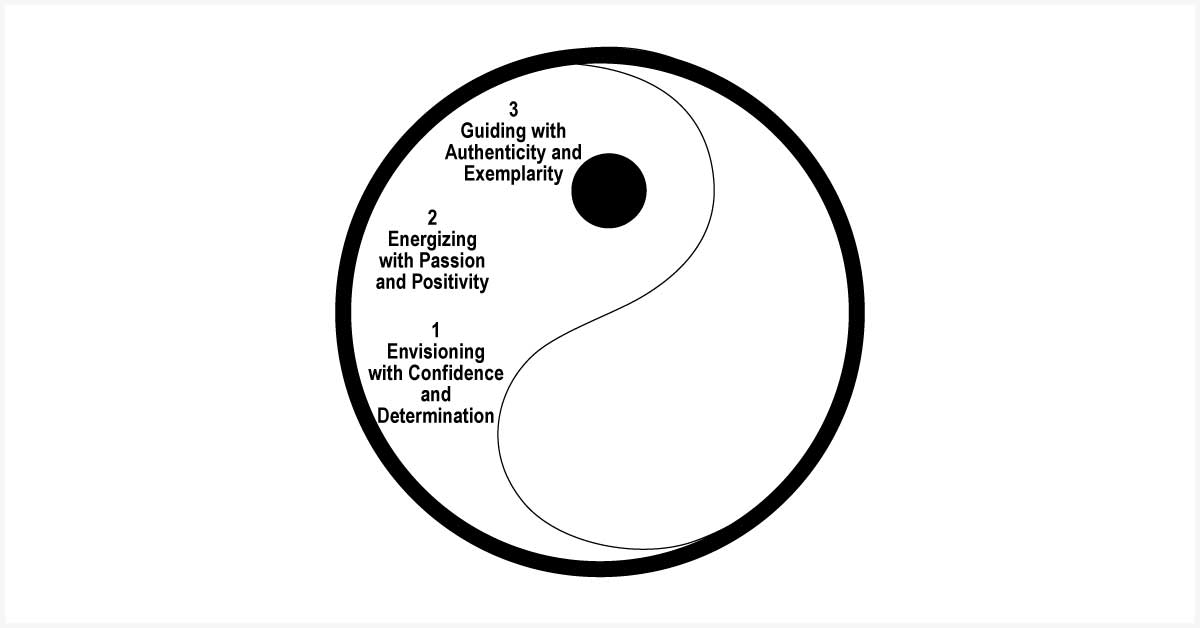What is Intentional Leadership? As outlined in my two recent books: The Yin and Yang of Leadership: A Theoretical and Practical Guide to Democratic Leading (2018), and Leadership Is a Choice: Choosing the Two Transformational Attitudes of Leadership in Your Everyday Life (2024), intentional leadership can first be described as the leadership attitude complementary to appreciative leadership. One as the assertive yang, the other as the receptive yin. These two transformational attitudes have consistently been highlighted in the fields of management, psychology, philosophy and spirituality.
Being intentional, which is akin to being appreciative (with its reflective and generative properties), involves choice and consciousness, and has the benefit of applying naturally to both individuals and collectives: What do I want? What do we want together? The term “wanting” proposed here encompasses the three forms of wanting: 1. wishing (imagining), 2. willing (orienting action from desires), and 3. will power (sustained willing).
The Three Dimensions of Intentional Leadership
I did my doctoral research on this subject, using my leadership workshops with leaders from around the world, and when I asked 300 hundred leaders from around the world what distinguishing feature characterized their personal best example of leadership, three intentional subthemes emerged from the responses gathered.
Intentional Subtheme 1. Envisioning With Confidence and Determination
The proactive notion of being intentional; of orientating one’s actions to realize a particular vision of what an individual or a collective want, is at the core of understanding leadership; as a future-oriented and creative act. With calm, confidence, faith, belief, and determination, good leaders make manifest an individual and collective will; owning their human capacity to influence the future by the way they envision it.
Intentional Subtheme 2. Energizing With Passion and Positivity
If envisioning (having/sharing/cocreating a vision) stands-out at the top of intentional factors, it is the energizing and unifying effect of passionate and positive energy for that vision that will actually drive the voluntary endeavor forward, with creativity, and with others. This positive perspective is what researchers are identifying as one of the key factors not only in leadership success but also in psychological health, vocational performance, and emotional resilience.
Intentional Subtheme 3. Guiding With Authenticity and Exemplarity
Individuals and groups who show good leadership exhibit coherence between what they say and what they do; they also exhibit a genuine commitment and discipline regarding what they want to accomplish. This subservient focus and refocus on doing “the right thing,” on “keeping one’s eyes on the prize,” on “keeping the end goal in mind,” are all different expressions of this selfless commitment to do whatever it takes to serve the purpose, the intention, something greater than oneself.
“As is your desire, so is your intention. As is your intention, so is your will. As is your will, so is your deed. As is your deed, so is your destiny.”
– Deepak Chopra


